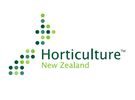Fresh fruit and vegetable consumption in Germany has increased by 100% since they were hit by COVID-19. Empty fruit and vegetable shelves are being spotted every day at Swiss retail stores, as daily order volumes are around 60% greater than normal.
by Mike Chapman, Chief Executive Horticulture New Zealand
Across the world, the value of eating healthy food is being re-recognised as vital when it comes to maintaining health and giving the body the best chance of fighting off disease. In New Zealand, feijoas, apples and kiwifruit are all in season and in plentiful supply. The usual range of autumn vegetables is also available, including kumara which is being harvested at present.
So, there’s plenty of variety but not as much healthy food available as there could be because only the supermarkets are open. Getting all the food that we grow to consumers is not easy at the moment, as independent fruit and vegetable retailers are not permitted to open, and restaurants are closed. A lot of the vegetables that we grow in New Zealand are sold through these independent retailers and to restaurants as well as fast food chains and outlets. Fast food chains alone purchase hundreds of millions of dollars of fresh vegetables each year.
Many of our growers do not currently have a way to sell their produce, so some of these growers are setting up delivery services, and some of the produce is going to food banks. This situation is reducing the volume of healthy food available to New Zealanders as not all fresh fruit and vegetables are, or can be, sold through the supermarkets.
What we are worried about is the possibility that those growers who can’t sell their produce will stop growing and reduce the supply of healthy food for New Zealand. We are in discussion with the Government about how this situation can be changed.
Worker safety is our paramount concern as we continue to grow and harvest during COVID-19 Alert Level 4. At the same time, we are planning for what the future of growing and employment in our industry might be.
Now is the time to prepare for what happens when we come out of COVID-19. Rabobank believes that a global recession is now more imminent but believes that there will be a positive impact for countries that are net food exporters, like New Zealand, because the world will likely be short of food. Therefore, we need to scale up and to do that, New Zealand needs to invest in infrastructure that supports increased growing. Investment in significant water storage and technically advanced growing is where we need to focus.
Finally, in case you were wondering, fruit and vegetables DO NOT transmit viruses or COVID-19. So, get along to your supermarket or order online some of the world’s best fruit and vegetables, and send an email to your Member of Parliament asking for independent retailers to be re-opened.

